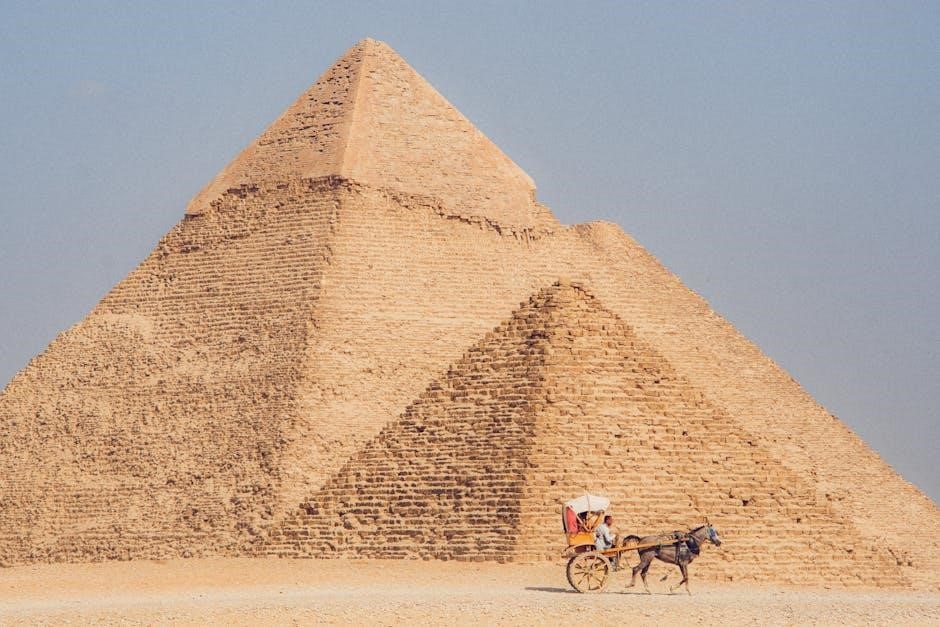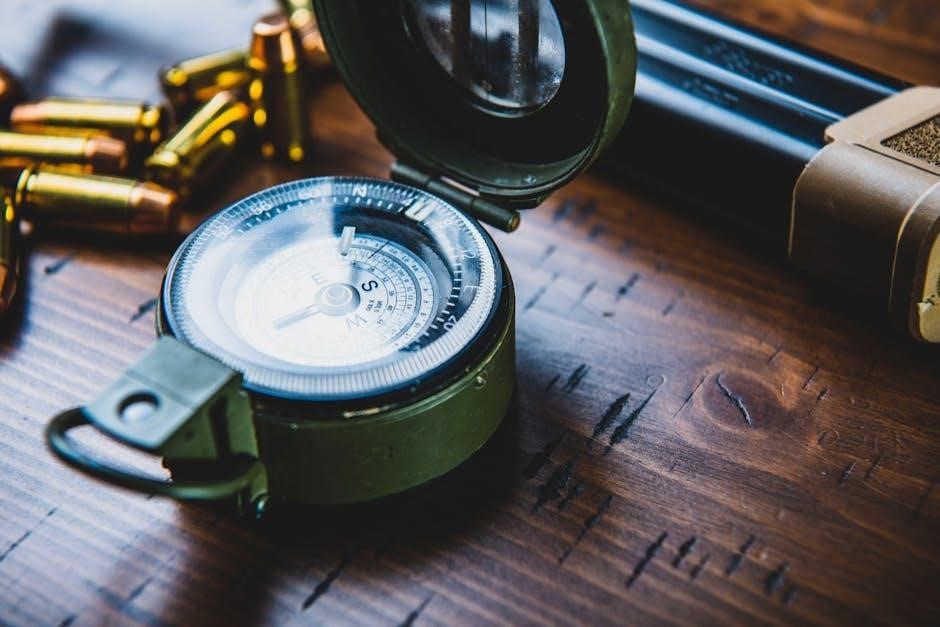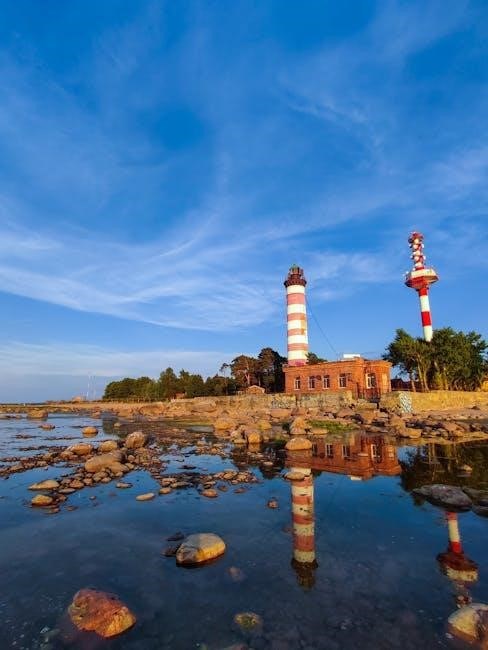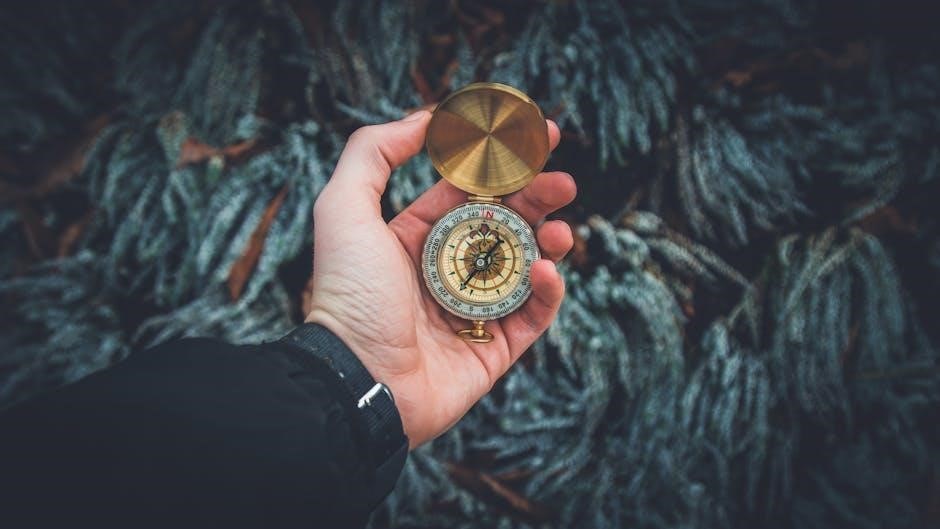Blacksmithing is a core crafting profession in Classic WoW, allowing players to craft powerful weapons, armor, and consumables. It pairs perfectly with Mining, providing essential resources for both PvE and PvP. This guide covers everything from leveling to specializations, helping you master this valuable profession in the Classic Era.
What is Blacksmithing?
Blacksmithing is a crafting profession in Classic WoW that allows players to create metal items like weapons, armor, and tools using ores and other materials. It requires an anvil and a Blacksmithing Hammer to craft items, making it essential for classes like Warriors and Paladins. This profession enables players to produce gear for themselves or others, making it a valuable skill for both PvE and PvP. Blacksmithing also offers specializations, such as Armorsmithing or Weaponsmithing, allowing for more focused crafting.
Importance of Blacksmithing in Classic WoW
Blacksmithing is crucial in Classic WoW for crafting essential weapons and armor, primarily benefiting Warriors and Paladins. It enables players to create gear for themselves and others, which is vital for progression. The profession is also key in PvP, where having the right equipment can make a significant difference. Additionally, Blacksmithing offers economic benefits by allowing players to sell crafted items on the auction house. Investing time into this profession provides long-term advantages, making it a valuable skill for any player looking to enhance their gameplay and support their guildmates.
Benefits of Choosing Blacksmithing
Choosing Blacksmithing offers numerous benefits, including crafting powerful weapons, armor, and consumables. It allows players to create gear tailored to their class needs, enhancing performance in both PvE and PvP. Blacksmithing also provides economic opportunities by selling crafted items on the auction house. Pairing it with Mining ensures a steady supply of materials, reducing costs. This profession is particularly advantageous for Warriors and Paladins, offering exclusive plate armor and weapon options. Overall, Blacksmithing is a versatile and rewarding choice for players seeking self-sufficiency and profitability in Classic WoW.

Getting Started with Blacksmithing
Start by finding a Blacksmithing trainer in major cities to learn the basics. Ensure you have an anvil and a Blacksmithing Hammer to craft items effectively.
Choosing the Right Class and Profession Combination
Blacksmithing pairs well with Mining, as it provides the necessary ores for crafting. Warriors and Paladins benefit most from Blacksmithing, as they rely on Plate armor. Crafted weapons like swords and axes are ideal for Warriors, Rogues, and Shamans. Pairing Blacksmithing with Mining ensures a steady supply of materials, saving gold and time. While other classes can benefit, Warriors and Paladins gain the most from crafted armor. This combination enhances gameplay efficiency and effectiveness for melee-focused characters.
How to Learn Blacksmithing
To learn Blacksmithing, visit a profession trainer in major cities like Stormwind or Orgrimmar. Trainers teach the Apprentice rank, unlocking basic recipes. As you level, return to trainers to learn Journeyman, Expert, and Artisan ranks, which unlock more advanced crafting options. Ensure you have a Blacksmithing Hammer and access to an anvil, as these are essential for crafting. Higher ranks expand your recipe list, allowing you to craft better gear and items. This progression system makes Blacksmithing accessible while rewarding skill improvement and dedication.
Apprentice, Journeyman, Expert, and Artisan Ranks
Blacksmithing progression is divided into four ranks: Apprentice, Journeyman, Expert, and Artisan. Each rank unlocks new recipes and improves crafting efficiency. Apprentice is the starting point, providing basic crafting abilities. Journeyman expands your skill set with intermediate recipes. Expert further enhances your capabilities, allowing the creation of advanced items. Finally, Artisan is the highest rank, granting access to complex and high-end crafting recipes. Reaching Artisan is a significant achievement, enabling you to craft powerful gear and items essential for endgame content and PvP; This structured progression rewards dedication and skill mastery.

Leveling Guide: 1-300 Blacksmithing
This guide provides a focused path to leveling Blacksmithing from 1 to 300, emphasizing efficient material use and progression through each skill range.
1-75: The Basics of Blacksmithing
Begin by crafting simple items like copper chain belts and bronze weapons. Use an anvil and blacksmithing hammer, essential tools for crafting. Start with copper ore, progressing to tin, then bronze, and eventually iron. Pairing with Mining ensures a steady supply of materials. Key recipes include copper chain belts, bronze boots, and rough stone molds. These early items are crucial for building skill and equipping low-level characters. Focus on efficiency to minimize material waste. Reaching skill level 75 unlocks more advanced recipes, setting the foundation for mastering higher-tier crafting.
75-150: Intermediate Blacksmithing
At this stage, focus on crafting mithril and iron items, such as chain gloves, breastplates, and swords. These recipes improve gear for mid-level characters. Use mithril ore, iron bars, and grinding stones to craft durable equipment. Farming routes for mithril in zones like Badlands or Searing Gorge are efficient. Prioritize crafting items with high demand, like mithril chain armor for Paladins or weapons for Warriors. Reaching 150 unlocks more advanced patterns, preparing you for crafting higher-tier gear and specializations like Armorsmithing or Weaponsmithing.
150-225: Advanced Blacksmithing Techniques
This phase introduces thorium-based recipes, enabling the crafting of high-end plate armor and powerful weapons. Focus on creating thorium bracers, belts, and weapons like the Arcanite Reaper. Many recipes require thorium bars, arcane crystals, and dense stones. Farm thorium ore in zones like Searing Gorge or Burning Steppes for consistent material supply. Some advanced patterns are quest rewards, so explore related quests. This range is crucial for preparing endgame gear, making it a pivotal step in mastering Blacksmithing for both PvE and PvP progression.
225-300: Mastering Blacksmithing
Reaching 300 skill in Blacksmithing unlocks endgame crafting capabilities. This phase focuses on thorium-based recipes, including powerful weapons like the Arcanite Reaper and high-end armor. Key materials include thorium bars, arcane crystals, and dense stones. Crafting items like the Nightfall or the Dark Iron sets becomes possible. Farm thorium ore efficiently in zones like Searing Gorge or Burning Steppes. This final stretch is crucial for crafting gear for raids and PvP, making mastery of Blacksmithing essential for endgame progression and profitability.
Blacksmithing Specializations
Blacksmithing offers two specializations: Armorsmithing and Weaponsmithing. Armorsmithing focuses on crafting plate armor for Warriors and Paladins, while Weaponsmithing specializes in creating powerful melee weapons for various classes.
Armorsmithing: Crafting Armor for Warriors and Paladins
Armorsmithing specializes in crafting plate armor, ideal for Warriors and Paladins. This specialization allows players to create high-quality chest, shoulder, and hand pieces. Key recipes include the Lawbringer Set and Judgement Set, which are highly sought after for their stats and bonuses. Armorsmiths can also craft unique items like the Lionheart Helm. To excel, pair this specialization with Mining for a steady supply of ores. This path is particularly beneficial for players focusing on tanking or PvP, as it provides access to powerful, class-specific gear.
Weaponsmithing: Crafting Weapons for Melee Classes
Weaponsmithing focuses on crafting powerful weapons like swords, axes, and maces, tailored for melee classes such as Rogues and Warriors. This specialization unlocks recipes for high-demand items, including the coveted Arcanite Reaper. A unique quest requires crafting and turning in 12 weapons to specialize, making it a commitment for those seeking the best tools for PvE and PvP. Pairing with Mining ensures a steady supply of materials; Weaponsmithing is ideal for players aiming to equip themselves or others with top-tier melee weapons, enhancing their combat effectiveness in Classic WoW.
Quests and Special Recipes
Blacksmithing in Classic WoW offers unique quests and special recipes that unlock exclusive items. For example, the Arcanite Reaper drops from Ban’thok the Bloodied in Searing Gorge, while Twilight is sold by a vendor at the Darkmoon Faire. Completing specific quests, like the Weaponsmithing specialization, requires crafting and turning in 12 weapons. These recipes often provide powerful endgame gear, making them highly sought after by players. Special recipes are typically obtained through drops, vendors, or rare quests, adding value to your profession and in-game economy.

Materials and Farming
Blacksmithing requires ores like Copper, Tin, Iron, Mithril, and Thorium, which can be mined or purchased. Crafting metals into bars is essential for creating items. Stones, cloth, and other materials enhance crafting efficiency, with Thorium being crucial for endgame recipes. Efficient farming routes and strategies ensure a steady supply of resources, enabling consistent progression in the profession.
Ores: Copper, Tin, Iron, Mithril, and Thorium
Ores are the foundation of Blacksmithing, with Copper and Tin being the starting points, found in early zones like Dun Morogh and Westfall. Iron ore is abundant in zones such as Arathi Highlands, while Mithril is rarer, often found in areas like Badlands. Thorium, the endgame ore, is scarce and typically mined in Searing Gorge and Burning Steppes. Each ore is smelted into bars, forming the base materials for crafting weapons, armor, and other items. Efficient farming routes and knowledge of ore locations are crucial for progressing in the profession.
Bars: Creating Metal Bars for Crafting
Metal bars are essential for crafting in Blacksmithing, created by smelting ores at a forge. Each bar type corresponds to its ore, like Copper Bar from Copper Ore. Smelting requires a forge and anvil, with higher-level ores needing more materials. Bars are used to craft weapons, armor, and tools, making them a critical resource. Efficiently smelting ores ensures a steady supply for crafting. Keep a stockpile of bars to progress through recipes smoothly and avoid delays in crafting essential items for your progression.
Stones: Grinding Stones and Dense Stones
Grinding Stones and Dense Stones are essential materials in Blacksmithing, used to craft sharpening stones and other items. Grinding Stones are commonly used to sharpen weapons, improving their effectiveness in combat. Dense Stones, however, are rarer and often required for advanced recipes. Both types of stones can be purchased from vendors or occasionally looted from mobs. Keeping a stockpile of these stones ensures you can craft consumables and tools without delays. They play a crucial role in both early and late-game crafting, making them a priority for any serious blacksmith.
Cloth: Mageweave and Other Materials
Mageeweave Cloth is essential for high-level Blacksmithing recipes, such as Thorium items. It’s not obtained through mining but can be purchased from vendors or acquired by disenchanting items. Having an ample supply is vital for crafting advanced gear and consumables without interruption. Stocking up early ensures you can progress smoothly through the higher tiers of the profession, making it a key material to gather alongside ores and bars for optimal crafting efficiency.
Trainers and Locations
Blacksmithing trainers are essential for learning new ranks and recipes. They are found in major cities for both Alliance and Horde factions, making it easy to progress your skill without extensive travel.
Alliance Trainers: Where to Find Them
Alliance blacksmithing trainers are located in major cities, including Stormwind, Ironforge, and Darnassus. In Stormwind, find the trainer near the blacksmithing shop in the Trade District. Ironforge’s trainer is in the heart of the city, near the forges. Darnassus has its trainer in the Craftsman’s Terrace. These trainers offer all necessary blacksmithing ranks and recipes, making it convenient for Alliance players to progress their skills without traveling far.
Horde Trainers: Where to Find Them
Horde blacksmithing trainers are primarily located in Orgrimmar, Undercity, and Thunder Bluff. In Orgrimmar, the trainer is near the blacksmithing shop in the Valley of Strength. Undercity’s trainer can be found in the Trade Quarter, close to the city’s forge. Thunder Bluff’s trainer is in the central area of the city, near the anvil. These trainers provide all essential blacksmithing ranks and recipes, ensuring Horde players can easily advance their crafting skills without extensive travel.
Specialized Trainers for Advanced Recipes
Specialized blacksmithing trainers in Classic WoW are located in specific zones and cities, offering advanced recipes for high-end items. For example, trainers in Gadgetzan (Tanaris) and other major cities provide rare and powerful recipes for both Alliance and Horde players. These trainers often require specific reputations or quest completions to unlock their recipes, making them essential for crafting top-tier weapons and armor. Seek them out to gain access to exclusive patterns for endgame gear and rare items.

Must-Have Recipes
Essential blacksmithing recipes include powerful weapons like the Arcanite Reaper and Twilight Blade, as well as armor sets for endgame content. Don’t miss key items like Solid Grinding Stone and Dense Stones for enhanced crafting. These recipes are crucial for both PvE and PvP success in Classic WoW.
Weapons: Swords, Axes, and Maces
Blacksmithing excels at crafting powerful melee weapons, including swords, axes, and maces, which are highly sought after by Warriors, Paladins, and Rogues. Key recipes include the Arcanite Reaper, a powerful two-handed axe, and the Nightfall, a devastating mace. These weapons are crafted using high-grade materials like Arcane Crystals and Dense Stones. They offer exceptional stats, making them ideal for endgame PvE and PvP content. Crafting these weapons not only enhances your character’s performance but also boosts your Blacksmithing skill level. These items are in high demand, making them profitable for crafters.
Armor: Mail and Plate Armor Sets
Blacksmithing allows players to craft essential Mail and Plate armor sets, which are vital for Warriors and Paladins. These sets, such as the iconic Lionheart Helm and Bluegill Helmet, provide exceptional protection and stats. Crafting armor requires materials like Mithril, Thorium, and Mageweave Cloth. High-end Plate armor, such as the Arctic Armor set, is particularly sought after for its durability and strength. Crafting armor not only supports your character’s progression but also enables you to supply gear for others, making it a valuable skill for both PvE and PvP scenarios. This ensures consistent demand for Blacksmithing services.
Other Items: Keys, Tools, and Consumables
Blacksmithing also allows the creation of utility items like Skeleton Keys for opening locked chests and Dense Grinding Stones for weapon sharpening. Consumables such as Runed Copper Rods and Arcane Dust are crafted using Blacksmithing, aiding casters and enchanters. These items are highly sought after, providing utility in dungeons and raids. Crafting tools and consumables supports both your character and others, making Blacksmithing a versatile profession for enhancing gameplay flexibility and convenience in Classic WoW.
Endgame Blacksmithing
Endgame Blacksmithing focuses on crafting powerful gear for high-level content, utilizing rare materials like Thorium and Arcanite. It supports both PvE and PvP, ensuring you stay competitive and valuable to your community.
Best Endgame Recipes for PvE
In PvE, Blacksmithing excels with recipes like the Arcanite Reaper and Nightfall, both dropping from Molten Core bosses. These weapons are highly sought after by melee classes for their exceptional stats. Additionally, crafting Thorium armor sets provides robust protection for tanks and healers. Recipes like Dense Sharpening Stones also remain valuable for raiding guilds, enhancing weapon effectiveness. These endgame recipes solidify Blacksmithing as a vital profession for progressing through Classic WoW’s challenging PvE content and supporting your community with essential gear.
Best Endgame Recipes for PvP
In PvP, Blacksmithing shines with recipes like the Arcanite Reaper, a devastating weapon for melee classes, and Nightfall, offering high damage and proc effects. Crafting Stamina-boosting armor like the Darkcrest set is ideal for PvP survivability. Additionally, Agility-enhancing weapons such as Wicked Blades benefit rogues and hunters. Dense Sharpening Stones also remain valuable, providing temporary weapon enhancements. These recipes make Blacksmithing a key profession for dominating battlegrounds and arenas in Classic WoW, ensuring your gear stands out in competitive play.
Thorium and Arcanite Items
Thorium and Arcanite items are some of the most powerful endgame crafts in Classic WoW. Recipes like the Arcanite Reaper, a highly sought-after weapon, and Thorium Sharpening Stones are essential for high-level players. These items often require rare materials such as Thorium Bars and Arcane Crystals, making them valuable for both PvE and PvP. Crafting Thorium gear, like Librams and Thorium Plate pieces, is crucial for raiders and players aiming to optimize their gear. These recipes highlight the importance of Blacksmithing in endgame content and competitive play.

Gold Making with Blacksmithing
Blacksmithing is a lucrative profession in Classic WoW, allowing players to craft high-demand items like weapons and armor for both PvE and PvP. Efficient farming strategies and selling crafting services can maximize gold income.
Farming Strategies for Materials
Farming ores like Copper, Tin, Iron, Mithril, and Thorium is crucial for Blacksmithing. Focus on zones rich in these ores, such as Westfall for Copper and Tin, or the Badlands for Mithril. Use efficient routes to minimize travel time and maximize ore collection. Additionally, farm Grinding Stones and Dense Stones from mobs or caves. Pairing Blacksmithing with Mining reduces material costs. Regularly check the auction house to identify high-demand items and adjust your farming priorities accordingly to maximize gold income and stay competitive in the market.
Selling Crafting Services
Selling your Blacksmithing services can be highly profitable in Classic WoW. Advertise your crafting services in major cities and trade channels to attract customers. Focus on high-demand items like weapons, armor, and consumables. Set competitive prices based on material costs and auction house trends. Offer discounts for bulk orders to attract guilds and frequent buyers. Clearly communicate your crafting availability and response time to build trust. Regularly update your listings and adapt to market demand to maximize your gold income and establish yourself as a reliable crafter.
Profitable Recipes for the Auction House
Focus on crafting high-demand items like weapons, armor, and consumables to maximize profits. Research the auction house to identify undersupplied recipes and set competitive prices. Popular items include swords, axes, and mail armor for warriors and paladins. Crafting grinding stones and dense stones also offers steady income. Timing your auctions during peak hours can increase visibility. Additionally, crafting Arcanite Reaper and Nightfall, rare weapons, can yield significant profits due to their demand for endgame content. Prioritize recipes with low material costs and high resale value to optimize gold-making strategies effectively.

Tips and Tricks
Pair Blacksmithing with Mining for resource efficiency. Use an anvil and hammer wisely for crafting. Farm materials in high-demand areas regularly for consistent stock. Always keep an eye on the auction house to price items competitively.
Pairing Blacksmithing with Mining
Pairing Blacksmithing with Mining is highly efficient, as mining provides the ores needed for crafting. This reduces reliance on the auction house and lowers costs. Mining complements Blacksmithing by ensuring a steady supply of materials like copper, tin, and iron. This synergy allows for faster leveling of both professions. Additionally, mining enables the creation of valuable items for sale or personal use. This combination is particularly beneficial for classes like Warriors and Paladins, who rely on the armor and weapons crafted by Blacksmiths. It is a cost-effective and time-saving strategy for any player.
Using an Anvil and Blacksmithing Hammer
Using an anvil and a Blacksmithing Hammer is essential for crafting. These tools are required for all Blacksmithing recipes. Anvils can be found near profession trainers, while hammers are purchasable from vendors. Ensure you always have access to both to craft efficiently. This setup allows players to utilize ores and bars effectively, making it a fundamental part of the crafting process in Classic WoW. Always keep your hammer equipped and know the nearest anvil location to streamline your Blacksmithing workflow. Proper use of these tools is crucial for mastering the profession.
Efficient Farming Routes
Efficient farming routes are crucial for gathering ores quickly. Focus on zones rich in specific ores, such as Arathi Highlands for Thorium or Hillsbrad for Mithril. Follow established circuits, staying along cliffs and roads where ore spawns frequently. Use your mount to cover large areas swiftly. Avoid crowded zones to minimize competition. Regularly revisit resource nodes to maximize yield. Plan routes based on your skill level and ore requirements. This approach ensures consistent material supply, keeping your Blacksmithing progression smooth and efficient in Classic WoW.
Avoiding Common Mistakes
Avoiding common mistakes is key to efficient Blacksmithing progression. Always check recipe requirements before crafting to prevent wasting materials. Never ignore the need for an anvil and Blacksmithing Hammer, as they are essential tools. Forgetting to train new skill ranks at the appropriate levels can stall progress. Avoid choosing a specialization that doesn’t align with your class or playstyle. Overlooking quest rewards for rare recipes can limit your crafting options; Don’t neglect to pair Blacksmithing with Mining for a steady ore supply. Wasting materials on low-demand items can hinder profitability. Neglecting to monitor the auction house for trends may result in missed gold-making opportunities. Lastly, avoid skipping the use of sharpening stones and weightstones, as they enhance crafted gear’s effectiveness.
Mastering Blacksmithing in Classic WoW empowers you to craft essential gear, support your class, and thrive in both PvE and PvP. With dedication and smart resource management, this profession becomes a valuable asset for any player, offering both enjoyment and profit.
Why Blacksmithing is a Valuable Profession
Blacksmithing stands out as a valuable profession in Classic WoW due to its versatility and utility. Players can craft essential weapons, armor, and consumables, making it a reliable source of self-sufficiency. It supports both PvE and PvP progression, offering high-demand items for raids and dungeons. Additionally, Blacksmithing pairs perfectly with Mining, enabling efficient material gathering and reducing costs. The ability to create sought-after gear enhances gameplay while providing a lucrative gold-making opportunity through the auction house.
Final Tips for Mastering Blacksmithing
To master Blacksmithing, focus on efficient material use and planning. Always carry a Blacksmithing Hammer and ensure access to an anvil. Pairing with Mining reduces costs and provides resources. Farm materials in high-demand areas like Arathi Highlands for optimal gold-making. Stay organized with recipes and prioritize crafting items in demand. Avoid wasting materials by following patterns carefully. Regularly check the auction house to maximize profits. With dedication and smart planning, Blacksmithing becomes a highly rewarding profession in Classic WoW.



